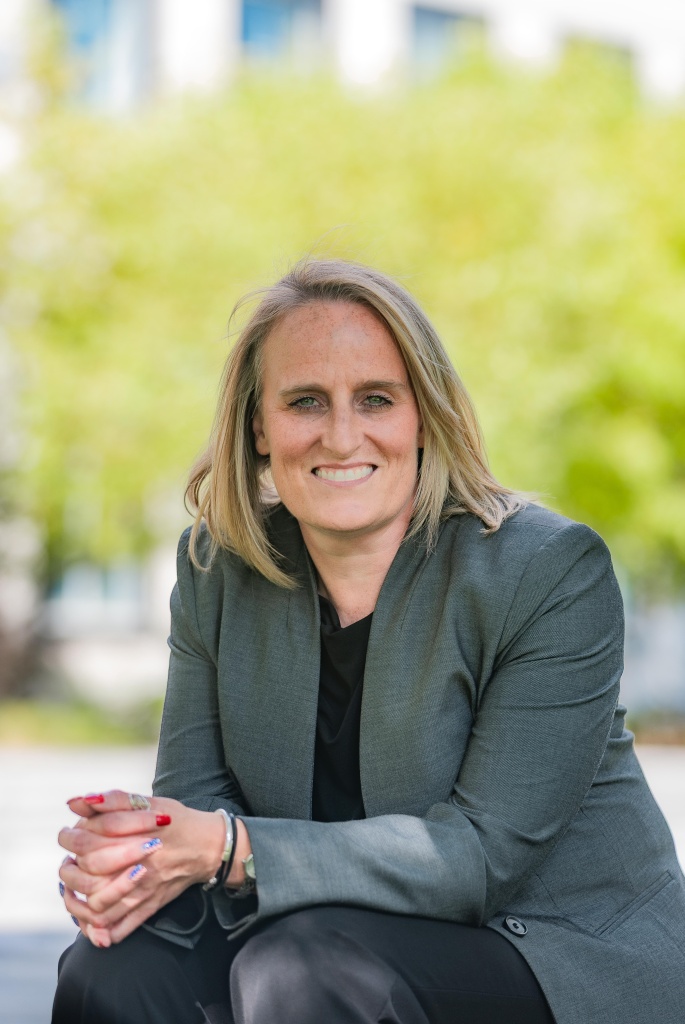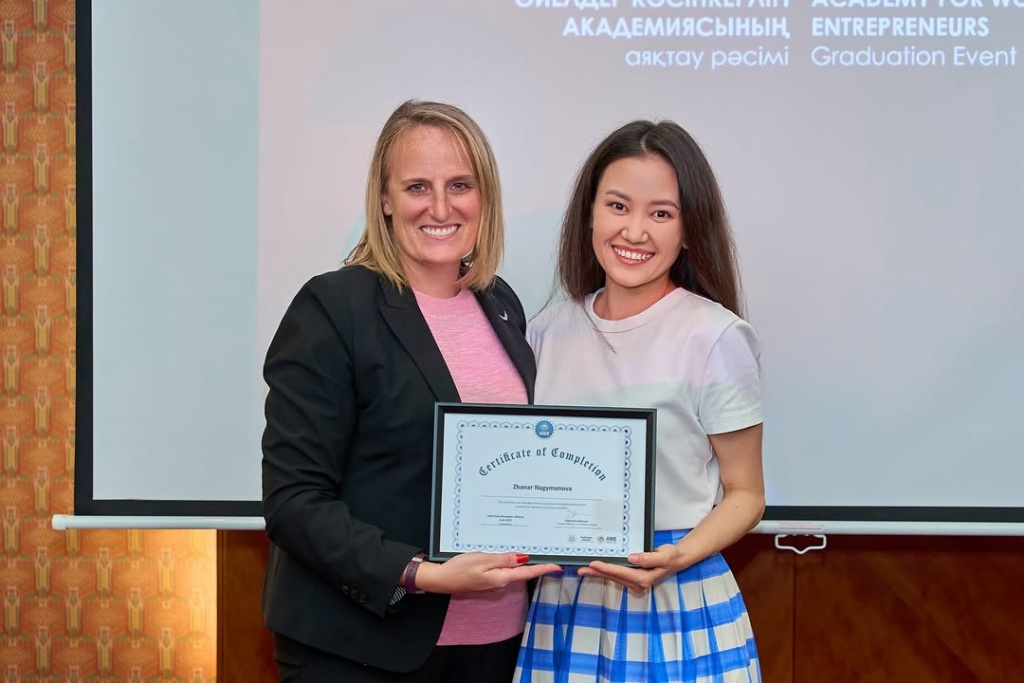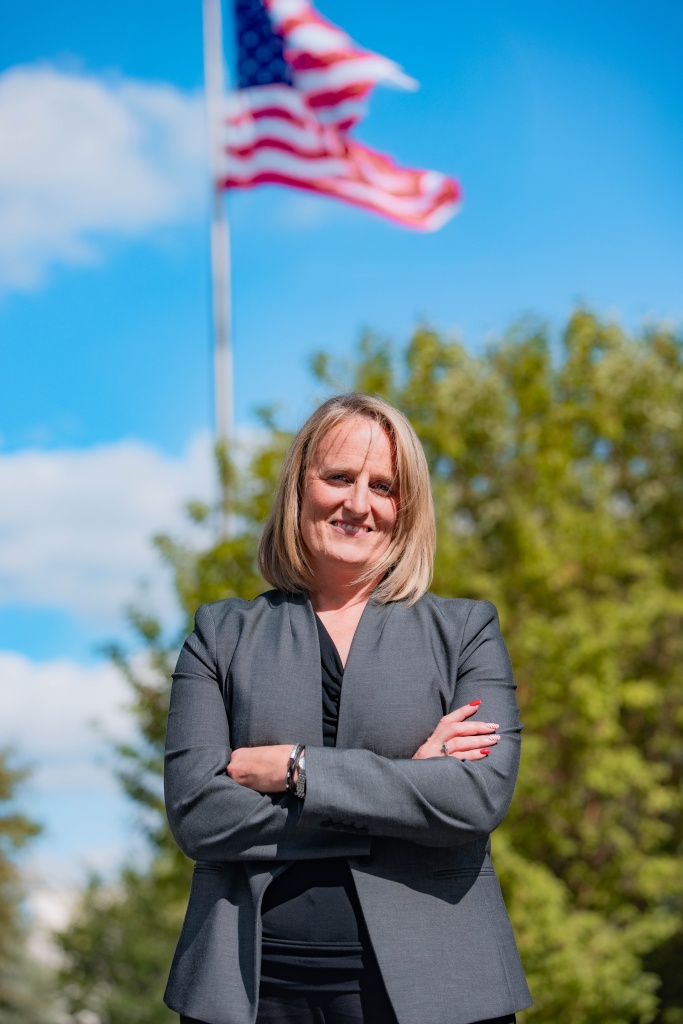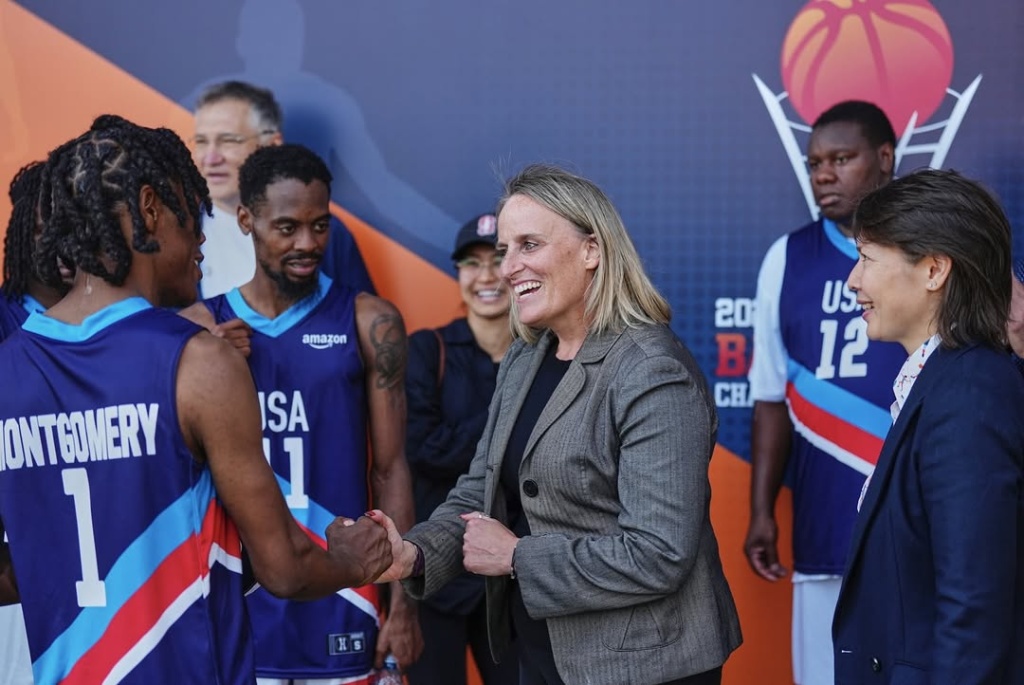The U.S. Mission’s Chargé d’Affaires shares what inspired her to become a diplomat, why she came to Kazakhstan, and which projects she supports in the country.
Deborah Robinson, city — Astana, Chargé d’Affaires at the U.S. Mission to Kazakhstan

About me
My interest in international relations began during my teenage years. My aunt taught at international schools around the world, and from a young age I listened to her travel stories, heard about the places she lived, and looked through her photos — all of this sparked a desire in me to see the world.
But there was another moment that shaped me. When I was in high school, a professor from a university in my hometown was taken hostage in the Middle East. It was a terrifying event that shook our entire community. Thankfully, he was released several years later. That was the first time I seriously thought about how such events happen, and it deepened my interest in international relations.
I went on to study international relations at university and later international law in law school — that’s how I entered the diplomatic service.
I’m also a big sports enthusiast, which ties directly to my upbringing in Colorado. That’s where the U.S. Olympic Training Center is located, attracting top athletes from around the country. Sports have been a major influence in shaping who I am.
About my work
My first posting was in Abu Dhabi, United Arab Emirates — an interesting place to start. But I haven’t returned to the Middle East since then; my professional focus shifted toward Central Asia. Before coming to Kazakhstan, I lived in Uzbekistan for three years and also worked in Pakistan, Afghanistan, India, and Colombia.

I also served as the U.S. coordinator for the C5+1 initiative — a platform through which the United States engages with Central Asian countries on regional integration issues. I worked on this project about 10 years ago while in Washington.
Additionally, I was a foreign policy advisor to a U.S. general whose area of responsibility included Central Asia. It was with him that I first visited Kazakhstan nearly 15 years ago. Since then, I’ve traveled extensively throughout the region, living and working in various countries. This accumulated experience has helped me better understand the history, culture, and human potential of Central Asia. I truly enjoy being here.
On Central Asia
Before this appointment, I had never been to Astana. My first trip to Kazakhstan 15 years ago was limited to Almaty and its surroundings. When I arrived in the capital, I was struck by how modern the city is. Everything shines — the buildings, the architecture, the streets.
I’ve spent a lot of time in Central Asia, and I can confidently say that this level of modernization is a distinctive feature of Astana.

I was especially impressed by the level of digitalization. Almost everything here can be done with a smartphone — paying for groceries, bills, even traffic fines. And it works seamlessly everywhere. In many countries, including the U.S., such digital solutions are not always so widespread. But here, it’s a truly “smart” infrastructure.
The capabilities of e-government services are remarkable: you can submit documents, pay taxes, get certificates — all without leaving home.
One more thing that surprised me — tulips. I love nature and enjoy spending time outdoors, hiking, and exploring. It was a revelation to learn that tulips originated in Kazakhstan. This spring, I traveled to the south of the country specifically to see the wild tulip fields in bloom — it was incredibly beautiful.
On work in Central Asia
Kazakhstan has been an important partner of the United States for nearly 35 years, ever since gaining independence. We’ve been there from the start, supporting the country both economically and diplomatically.
The United States consistently supports Kazakhstan’s sovereignty, independence, and territorial integrity. Another key area is economic cooperation. We have strong economic ties, and American companies operate in a wide range of sectors in Kazakhstan — from mining, energy, and infrastructure to transport, critical minerals, and technology.
One of our shared goals is to make Kazakhstan’s investment climate even more transparent, modern, and predictable. More and more American businesses are showing interest in Kazakhstan, looking to invest and expand their presence here. We are working together to build a strong foundation for that.

But our cooperation goes far beyond the economy. Cultural and educational exchanges play a vital role. Through the FLEX program, Kazakhstani high school students can study in U.S. schools, and the Fulbright Program supports teachers and professionals.
We’re also proud of our network of ten American Corners across the country. These are open, accessible spaces where people can learn English, explore American culture, develop professional skills, and even gain STEM knowledge.
These are key areas of cooperation where we work actively with Kazakhstan — and they benefit both sides.
Just a month ago, a group of Kazakhstani AI specialists traveled to the U.S. as part of our International Visitor Leadership Program. They met with experts, shared experiences, and returned with fresh ideas and approaches.
The U.S. is currently the global leader in artificial intelligence, and Kazakhstan has ambitious plans in this field.
Around the same time, together with the Minister of Digital Development, Innovation and Aerospace Industry, we launched an AI accelerator in Astana with support from Meta. It’s another great example of U.S.-Kazakhstan cooperation in advancing cutting-edge technologies.
We also recently brought the American bluegrass band Henhouse Prowlers to Kazakhstan. They gave a free concert along the Yessil River promenade. Besides performing, they held workshops in schools and universities, taught music, connected with local musicians, and learned about Kazakh music.
It was a true cultural exchange. We often carry out such projects — inviting American musicians, athletes, and educators to share their experience, talk about our culture, and learn from local communities.
There are many programs like these, covering a wide range of fields. The best way to stay informed is to follow our social media channels and the embassy website, where we regularly post information about all opportunities.